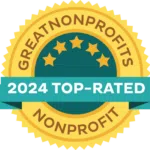Myalgic Encephalomyeltis / Chronic Fatigue Syndrome (ME/CFS) is a multisystem, chronic and complex disease (msCCD) that, pre-COVID, affected around 230,000 Australians[1]. In 2020, the direct medical cost was estimated at $5.295b, or $23,022 per case per year, and the aggregate community cost at $14.5b per year[2]. Recent studies indicate that a further 77,000 Australians are estimated to experience ME/CFS-like symptoms after two years of Long COVID[3].
OMF also supports the Bateman Horne Medical Education Resource Center, which is dedicated to educating healthcare professionals to expand their awareness, knowledge, diagnostic, and treatment ability for the benefit of those with multi-system Chronic Complex Diseases (msCCD) such as ME/CFS, Long COVID, FM, post-viral syndromes, and related comorbidities. You can find medical resources and ECHO training programs here.
The Melbourne ME/CFS Collaboration, established at the University of Melbourne’s Bio21 Institute, is directed by Dr. Christopher Armstrong. This research collaboration seeks to characterise the unifying biological pathways of ME/CFS that relate to the shared disease experience between patients while also understanding each patient’s unique biology that creates variation in disease experience and severity.
In the next year, Dr. Armstrong’s team aims to:
This research is supported by Open Medicine Foundation, the world’s largest privately funded organisation. OMF’s mission is to fund and facilitate open, collaborative research into chronic, complex diseases so that patients will be able to live their lives more fully. With more than 200 researchers around the globe investigating aspects of the disease at a molecular, cellular and system level, and with a research agenda set by a highly credentialed and renowned 19-member Scientific Advisory Board, OMF’s aspiration is that these discoveries will establish biomarkers and orient the development of diagnostic tools for testing and treatment, on the pathway to a cure.
 While we fully intend to collaboratively co-design the research program with GPs, our precision medicine approach relies on accurate data from as many patients as possible. As such, we propose that:
While we fully intend to collaboratively co-design the research program with GPs, our precision medicine approach relies on accurate data from as many patients as possible. As such, we propose that:
Some patients may be invited to undertake whole blood samples for genome testing and cell-based assays, which would need to be collected by a phlebotomist.
We are open to discussing short- and long-term collaborations. For more information, please contact Chris Armstrong at christopher.armstrong@unimelb.edu.au.
You can find out more about the Melbourne ME/CFS Collaboration and current projects here.
[1] Lim, E. J., Ahn, Y. C., Jang, E. S., Lee, S. W., Lee, S. H., & Son, C. G. (2020). Systematic review and meta-analysis of the prevalence of chronic fatigue syndrome/myalgic encephalomyelitis (CFS/ME). Journal of Translational Medicine, 18(1), p. 1.
[2] Close et al., 2020, p. 5 report aggregate and individual case costs per year; extrapolated by prevalence.
[3] CDC, 2022, report that 19% of people who contract COVID progress to long COVID and, of those, according to a 7 month prospective study of 3762 COVID patients, 86.7% experienced PEM and other ME/CFS symptomology (Davis et al., 2021, p. 1). After 2 years, symptoms remain in between 2-4% of patients (Hickie et al, 2006, p. 3). As at 12 September, 2022, there were 10,112,229 cases of COVID-19 in Australia.
Open Medicine Foundation Australia Limited is registered as a charity with the Australian Charities and Not-for-profits Commission (ACNC). We are authorised by the Australian Tax Office as a deductible gift recipient (DGR). Donations of $2 or more are tax-deductible.
ABN 81 635 273 415



Open Medicine Foundation Australia Limited
C/O Accru Melbourne Pty Ltd
50 Camberwell Road
Hawthorn East VIC 3123
OMF Australia acknowledges the Traditional Custodians of the lands on which we operate, the Aboriginal and Torres Strait Islander peoples. We extend our respect to Elders past and present, recognising their enduring connection to country, knowledge, and stories.
Make the most of your donation by donating your Bitcoin, Ethereum, and other cryptocurrencies directly to OMF Australia rather than selling and donating the after-tax proceeds.
OMF Australia can accept cryptocurrency donations of any amount.
Donating cryptocurrency is a non-taxable event, meaning you do not owe capital gains tax on the appreciated amount and can deduct it on your taxes. This makes Bitcoin and other cryptocurrency donations one of the most tax-efficient ways to support your favorite cause. If you want to learn more about how donating crypto can lower your taxes, check out thegivingblock.com/faq.
Talk to a crypto-savvy tax professional or connect with The Giving Block to get connected with one.
We accept the following cryptocurrencies: Bitcoin (BTC), Ether (ETH), Litecoin (LTC), Bitcoin Cash (BCH), Zcash (ZEC), Gemini Dollar (GUSD), Basic Attention Token (BAT), Chainlink (LINK), 0x (ZRX), Storj (STORJ), Dai (DAI), Amp (AMP), The Graph (GRT), UMA (UMA), 1inch (1INCH).